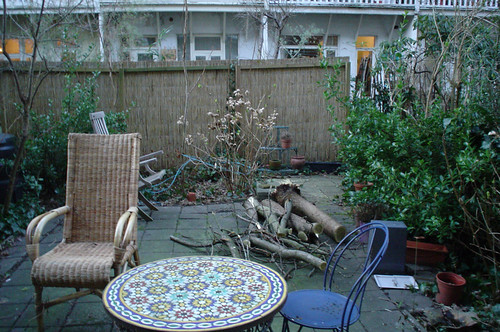It sounds like a dessert. But really you should never bite into it, because it probably tastes like fat, sweaty, old men. No offense to the sweaty fat guys out there, it’s not all your fault. But if there’s one thing I like about the Israeli parliament, is that you only need 2% of the vote for your party to get some seats.
 I was just thinking about this as they count up the votes and smile for the cameras; say you’re a bunch of old retired people? You can just get together, go door to door, or maybe just stroll the halls of the retirement home, and after lots of work, maybe you’ll get your 2%! Voila, suddenly the old retired party has some seats for the big show; and you’ll be banging your fist against the table and running over other parliamentarians toes with your wheelchair in no time! Oh wait – that already happenned… they’re called the Gimla’ey Yisrael LaKneset. Hows that for representation? – fun!*
I was just thinking about this as they count up the votes and smile for the cameras; say you’re a bunch of old retired people? You can just get together, go door to door, or maybe just stroll the halls of the retirement home, and after lots of work, maybe you’ll get your 2%! Voila, suddenly the old retired party has some seats for the big show; and you’ll be banging your fist against the table and running over other parliamentarians toes with your wheelchair in no time! Oh wait – that already happenned… they’re called the Gimla’ey Yisrael LaKneset. Hows that for representation? – fun!*
So the old people got a few seats and as I scan down the list past the big mainstream parties, I see they’ve got a communist arab party with some seats, a religious arab party with some seats, a social democractic party, a party united around the Torah, and then a bunch of religious parties with very long and scarey names. Scarey to me, they could actually mean “Milk and Cookies for Everyone in Israel party”… something about Hebrew that makes even milk and cookies look aggressive to me.
Anyway they’re counting the little sheets of paper and the numbers are rolling in. And you don’t need me to tell you who won and who is an unpopular, never going to be prime minister again, zero-personality, war mongering, far-right jerk. You’ve got the media and plenty of blogolas to tell you that stuff. I’m just hoping the Amsterdam cable system can hook me up with live coverage of the Knesset from now on – it’ll be more interesting than Idols.
* This is not sarcasm, I actually think this is much cooler than a certain OTHER type of government system.


 I was just thinking about this as they count up the votes and smile for the cameras; say you’re a bunch of old retired people? You can just get together, go door to door, or maybe just stroll the halls of the retirement home, and after lots of work, maybe you’ll get your 2%! Voila, suddenly the old retired party has some seats for the big show; and you’ll be banging your fist against the table and running over other parliamentarians toes with your wheelchair in no time! Oh wait – that already happenned… they’re called the
I was just thinking about this as they count up the votes and smile for the cameras; say you’re a bunch of old retired people? You can just get together, go door to door, or maybe just stroll the halls of the retirement home, and after lots of work, maybe you’ll get your 2%! Voila, suddenly the old retired party has some seats for the big show; and you’ll be banging your fist against the table and running over other parliamentarians toes with your wheelchair in no time! Oh wait – that already happenned… they’re called the 